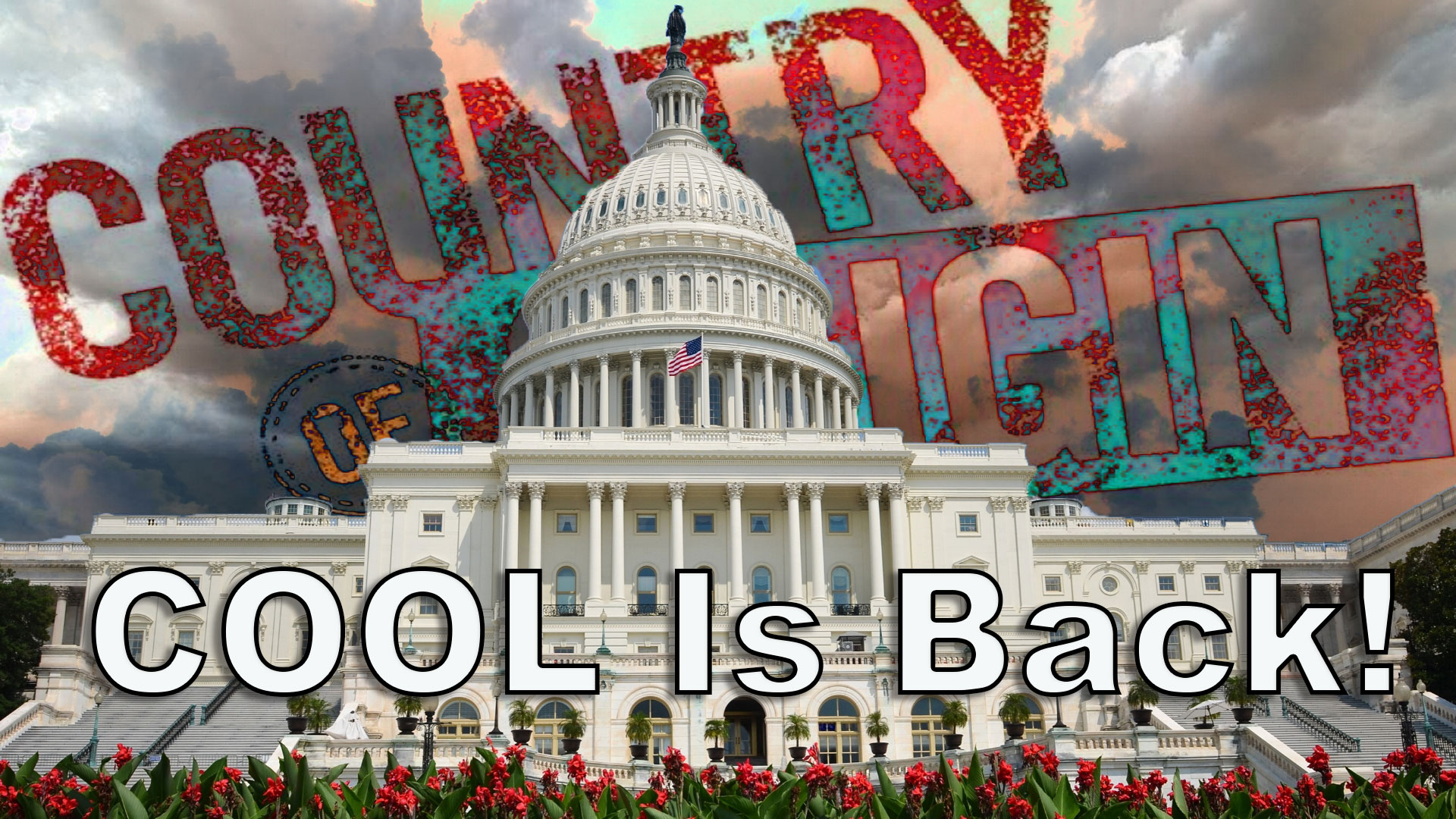COOL is back again so is it time to face meat labelling reality

Like an unwelcome itch that never goes away, American Country of Origin Labelling (COOL) legislation recently came back to haunt the Canadian meat industry – particularly the cattle and beef sector
by Will Verboven – The Bulletin
The COOL issue is decades old and has cost the industry millions in product discounts, logistical hoops, red tape, and lobbying expenses by our provincial and national cattle producer organizations.
I suspect the beef industry may have hoped that the World Trade Organization ruling in favour of Canada and Mexico had finally put the issue to rest. But alas, no such luck.
For some nefarious US protectionist groups, the issue will never be settled until all meat and livestock imports from Canada are banned.
“There isn’t much point in regurgitating why vCOOL is because, in the end, it doesn’t matter to protectionists, many of whom are outside of the meat industry and who have other agendas.”The issue always seemed to be driven by some underlying factors – first, the misguided per-ception that if all beef and cattle imports were restricted or banned, the price of live cattle for US producers would skyrocket.
Yes, that’s a great supply and demand theory, but it doesn’t quite work that way in the North American cattle and beef business. There isn’t much point in regurgitating why that is because, in the end, it doesn’t matter to protectionists, many of whom are outside of the meat industry and who have other agendas.
Another reality is that folks involved in promoting COOL work for lobby organizations that pursue and initiate protectionist rules and regulations as a business. Consider the notorious R-CALF USA anti-Canadian lobby group, who have been the driving force behind COOL for the past thirty years. COOL is their main issue, and their fearmongering has been instrumental in accumulating countless thousands in donations to keep the organization going. Fearmongering for donations is nothing new in the lobbying business; animal rights and green left groups always use that approach. It gives such groups more money to hire more professional staff – whose full-time job is, you guessed it, to lobby and fearmonger their causes for more donations. In a perverse way, the endless COOL odyssey has been a boon to R-CALF as it has allowed it to remain in business.
One has to credit the devious nature of R-CALF as it has been successful in allying itself with other seemingly dissimilar lobbying groups to keep itself alive and successfully pursuing its cause in high political circles in Washington, DC. Some of those groups are larger, better connected and better strategists. I suspect they will support any cause for a price or will deem R-CALF to be useful idiots in supporting their own causes.
Again, there is nothing new in that business – animal rights, vegetarian, green left groups and enviro law agencies are all known to be interconnected – heck, such folks even have conventions where they can make deals, strategize and find ways to share causes. But I digress.
Knowing all that, it’s no surprise that new COOL legislation would rear its head again. The latest, which goes into effect in 2026, uses a voluntary approach called vCOOL instead of the mandatory one called mCOOL. The latter was declared illegal by the WTO – vCOOL is designed to dodge that ruling. The onus will be on packers/processors to prove that the cattle or beef they use are 100% of US origin to use the “Product or Made in USA” label. Meat marketers will have to decide whether using that label will be more profitable for their business.
The latter was declared illegal by the WTO – vCOOL is designed to dodge that ruling. The onus will be on packers/processors to prove that the cattle or beef they use are 100% of US origin to use the “Product or Made in USA” label. Meat marketers will have to decide whether using that label will be more profitable for their business.
However, with their multiple sources of domestic and imported meat products, I suspect the big dogs will find ways to manipulate label use to their specific market ad-vantage. That brings to mind whether Canada should use its WTO authorization to impose retaliatory tariffs on US imports to deal with the new vCOOL regulations. The odds are Canada won’t take that option, as our timid trade officials would be loathe to challenge and upset the US, especially with NAFTA renegotiations coming up in 2026. There would be no political benefit to poking the bear.
Unfortunately, in this situation, neither a Biden nor a Trump US administration would make much difference in this issue. Both are merciless protectionists for the same reason – protecting American jobs and industry from foreign competition.
Also, fighting the new vCOOL isn’t worth the cost and effort without federal government involvement. Maybe vCOOL is the best of a bad situation. Perhaps more US dairy product import access could be traded for a vCOOL exemption. Not likely; the Quebec-centric, politically powerful Canadian dairy lobby would never allow that to happen.
Will Verboven is an ag opinion writer.












